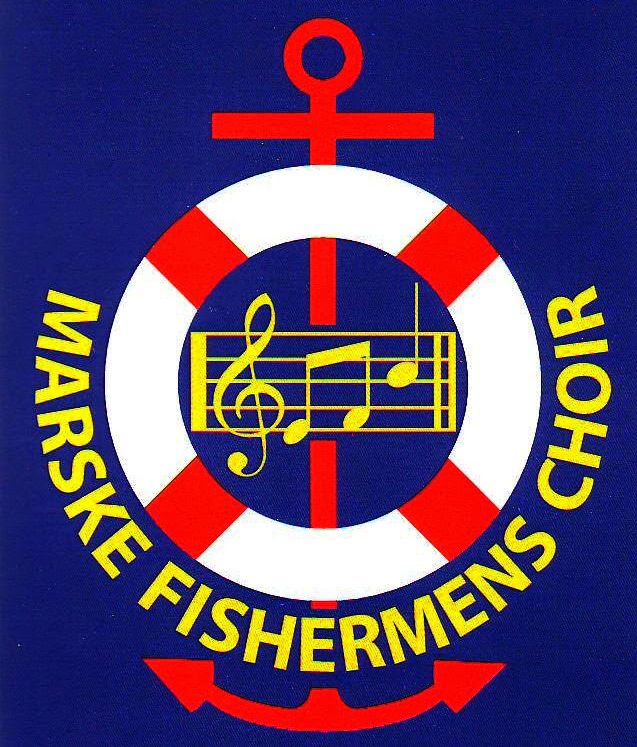As the name implies, the Choir was formed in the village of Marske by the Sea, located on the North
East Coast of Yorkshire between Redcar and Saltburn. The Choir in reality was not really formed; it evolved during the 1960s. The fishing at Marske at the time, although being part time, buzzed with energy, rivalry and enthusiasm, the boats being worked in the summer evenings and at weekends. Crewed by men and boys infected by sea-fever, there were always more crew than boats to carry them. Among the fishermen were some of a musical bent who played instruments. These were usually produced and played at the least excuse, usually in the Ship Inn after the fishing. During the summer, the period of the last week in July and the first week in August was reserved by most of the fishermen to work the boats full time. The middle Saturday of this fortnight was the “fishermen’s day out”. This consisted of a trip down the coast to Staithes or Whitby, encamping in a pub, producing the accordion and banjo and singing songs for the full period that licensing hours allowed at the time. Invariably the singing continued on the quayside. From this background the Choir evolved due to the efforts of one man, the late Jimmy Madden, who indicated he would consider arranging harmonies for some songs associated with the sea if volunteers were willing to practise them. From this, the foundation was laid with the first concert being performed during December 1968. Since that time the Choir has gone from strength to strength, giving approximately 25 - 30 concerts each season from September to the end of March. The repertoire includes a wide selection of sea songs and shanties, popular songs and a few hymns with maritime imagery or significance. These are now all arranged by one of the original founder members, the present Musical Director, Bill Porritt (who is also the sole accompanist on guitar) into unique three-part harmonies for “Squeakers”,”Groaners” and “Grunters”. The Choir is proud of the fact that they have never charged a fee for a performance. As the reputation of the Choir has grown there have been several notable milestones over the years, Seven records/tapes/CDs have been produced. Many television and radio appearances have been made, including leading a Songs Of Praise programme from Liverpool in July 1988. Several prestigious concerts away from home, including trips to Liverpool, Fraserburgh, Milford Haven, Holland and Germany. The Choir has appeared all over Britain, and even abroad, at many different sorts of musical occasion such as the Tall Ship festivals and milestone anniversaries for which special songs have been written for the Choir – "The Newbiggin Lifeboat", "The Fraserburgh Lifeboat", and very near to home, reputedly the oldest lifeboat in Britain, "The Zetland Lifeboat" at Redcar; the Choir also sang at the 175th anniversary of the R.N.L.I. at York Minster in 1999. Our concerts in support of social, community and fundraising events for a wide variety of charities and organisations have resulted, not only in providing entertainment, but also in thousands of pounds being raised for a vast number of very deserving causes, especially the R.N.L.I. by whom we were recognised and honoured with the presentation of the 2006 National Group Supporters’ Award. In 2008 the Choir celebrated its 40th Anniversary and the year was crowned with the conferment of the Freedom of the Borough of Redcar and Cleveland.
Today the Choir continues to thrive and raise money for local charitable organizations.
Membership at present is twenty two:- Our Leader, 8 Squeakers, 9 Groaners and 5 Grunters.
HOW IT ALL BEGAN
